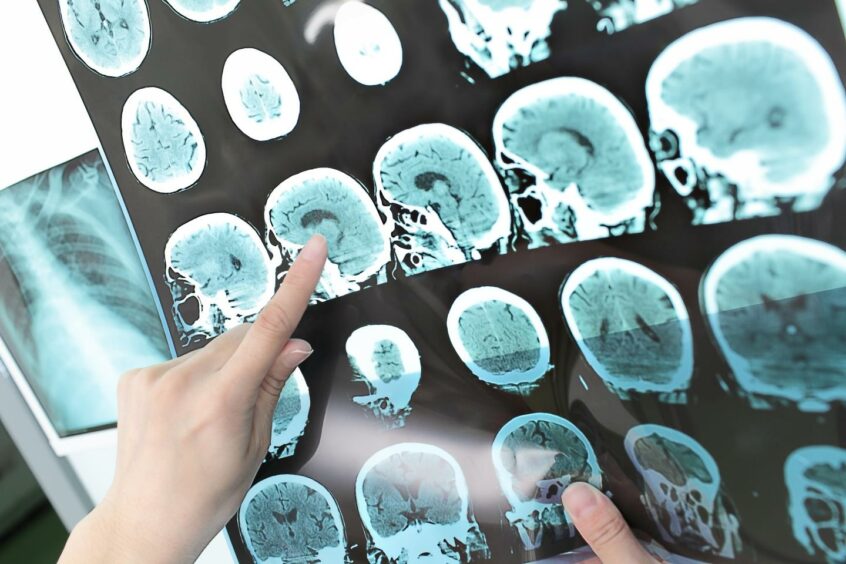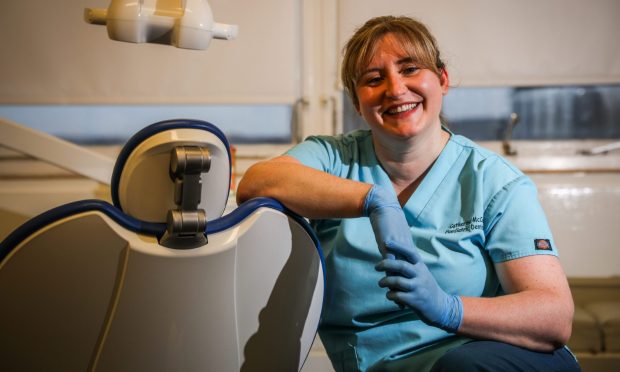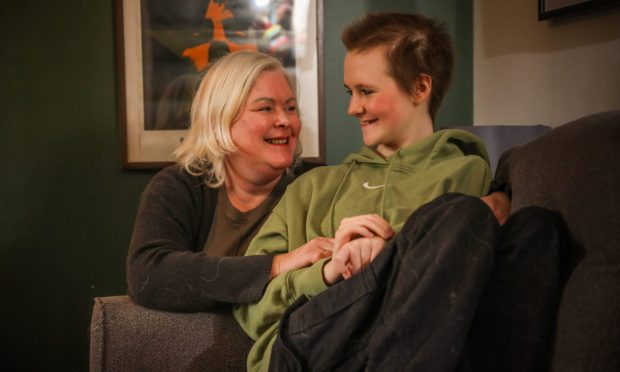People living with MS in Tayside and Fife will be able to access a cannabis-based drug on the NHS.
A drug called Sativex has been approved by the Scottish Medicines Consortium (SMC) for use on the NHS in Scotland.
More than 15,000 people in Scotland living with the condition, say MS Society Scotland, will be able to benefit from the “potentially life-changing effects of the drug.”
What is it, how can it help if you’re living with MS and what are the next steps?
Up until now, Sativex was approved for use on the NHS in England, Wales and Northern Ireland, but not in Scotland.
A limited number of people have been able to access it via the Peer Approved Clinical System (PACS) Tier 2 individual patient treatment request process.
MS Society has campaigned for wider availability of the drug across the whole of the UK, including approval in Scotland.
What is in this MS cannabis drug?
Sativex is a mouth spray that is used to treat moderate to severe muscle stiffness and spasms (known as spasticity) in MS when other medicines haven’t worked.
It contains two chemicals from the cannabis plant called cannabinoids.
They are called tetrahydrocannabinol (THC) and cannabidiol (CBD).
Which MS symptoms does it help?
It is the only drug in the UK with a licence to treat the muscle stiffness and spasms caused by MS.
Although Sativex only has a licence to treat spasticity, some people say it also helps with other MS symptoms too.
These include:
- bladder problems
- difficulty sleeping
- tremor (uncontrolled shaking of the arm or leg).
A number of drugs already exist to treat spasticity.
But many people with MS have told the MS Society they find these ineffective.
They also say they struggle to tolerate the side effects, which can include memory problems and depression.
How does treating MS symptoms help?
The drug works by relieving muscle spasms and the pain associated with them.
This leads to increased mobility, better sleep patterns and an improved quality of life for the person living with MS.
One of the few people to have tried Sativex in Scotland is Lillias Rapsom, from Thurso, who has been using it since 2018.
She says maintaining her functionality and controlling pain without the use of addictive opioids is a worry off her mind.
“I take eight sprays of Sativex a day.
“I’m able to live a life and work out without the severe intensity of MS pain.
“I still experience muscle spasms but they are now mostly controlled using Sativex, along with meditation, breathing exercises and listening to my body, resting when I need to.
“I’ve not experienced any side effects.”
Are there side effects?
There are potential side effects from Sativex.
These include feeling sick, tired, dizzy, or having diarrhoea.
But they tend to fade after a few weeks.
Some people don’t experience them at all.
Can I get it for my MS?
Morna Simpkins, Director of MS Society Scotland, says they welcome the news.
She adds they will continue to work with the SMC, NHS Scotland, individual health boards and neurologists.
She says: “We’ll ensure Sativex quickly becomes available to everyone throughout Scotland whose life could be significantly improved by taking it.”













Conversation